Photos document US eviction crisis as families struggle during the pandemic
Getty photographer John Moore spent a week documenting evictions in Arizona.
As hard-hit families struggle financially and rent moratoriums expire, John Moore of photo agency Getty Images spent more than a week with the Maricopa County Constables Office in Arizona photographing the eviction crisis many Americans are facing during the coronavirus pandemic.
The Centers for Disease Control announced a federal eviction moratorium in September for renters impacted by the pandemic at a time when many state and local eviction protections were expiring, with the aim of avoiding massive numbers of evictions that would further worsen the health crisis. The CARES Act also provides a moratorium on evictions from federally-subsidized properties, properties that have a federally backed mortgage, and for those who receive rental assistance through a voucher or grant program.
But millions of Americans are still unemployed due to the pandemic, federal rental assistance proposals remain gridlocked in Congress, there's been no extension of additional weekly unemployment benefits that have been a lifeline for many during the crisis, and the CDC's eviction moratorium -- which is set to expire at the end of the year -- is itself being challenged in court.
As a result, the nonprofit think tank Aspen Institute estimated in August that 30 to 40 million people in the U.S. could be at risk of eviction as moratoriums expire, unless there is "more robust and swift intervention."
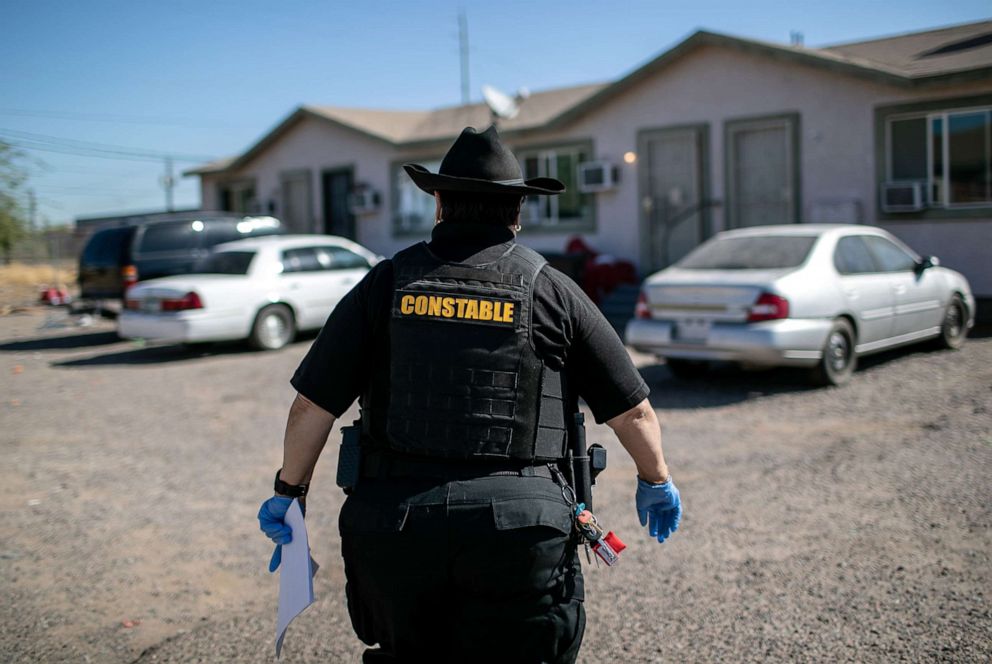
In Arizona's Maricopa County, Moore documented some of the court-ordered evictions taking place despite the measures in place.
Constable Darlene Martinez spends her days knocking on doors in Maricopa County to serve court-ordered eviction notices. Below, a maintenance man helped her enter a home that's under eviction.
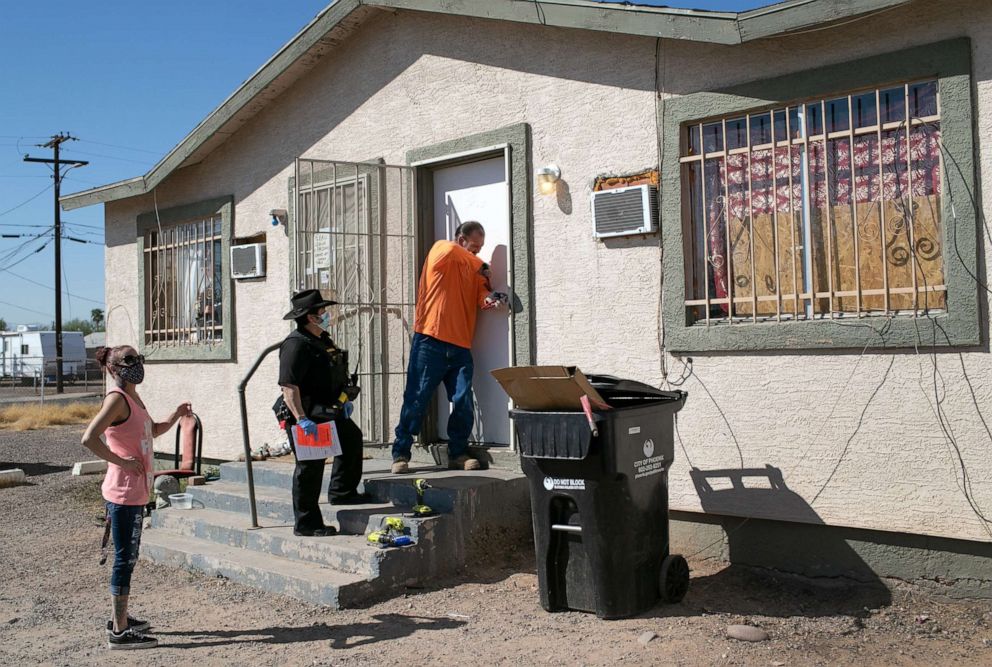
The single mother pictured below hadn't been able to pay rent for six months. She said she'd been staying home to oversee her children's distance learning, making her unable to work. Martinez told Moore that she tries to de-escalate moments of high anxiety for families suffering one of their toughest days.
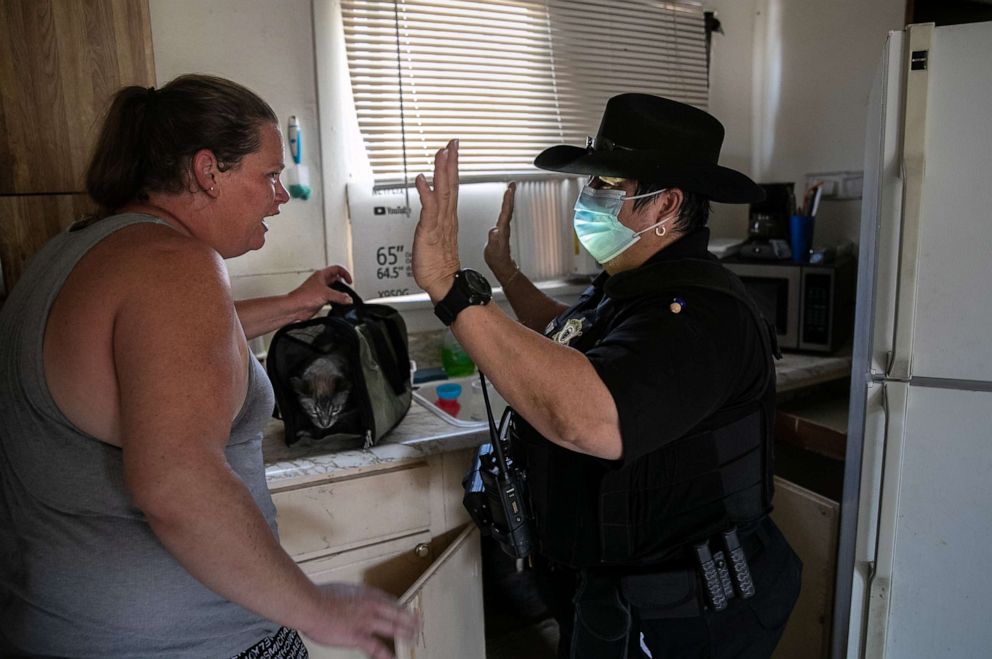
Constable Martinez helped the family find their cat as they packed up their belongings.
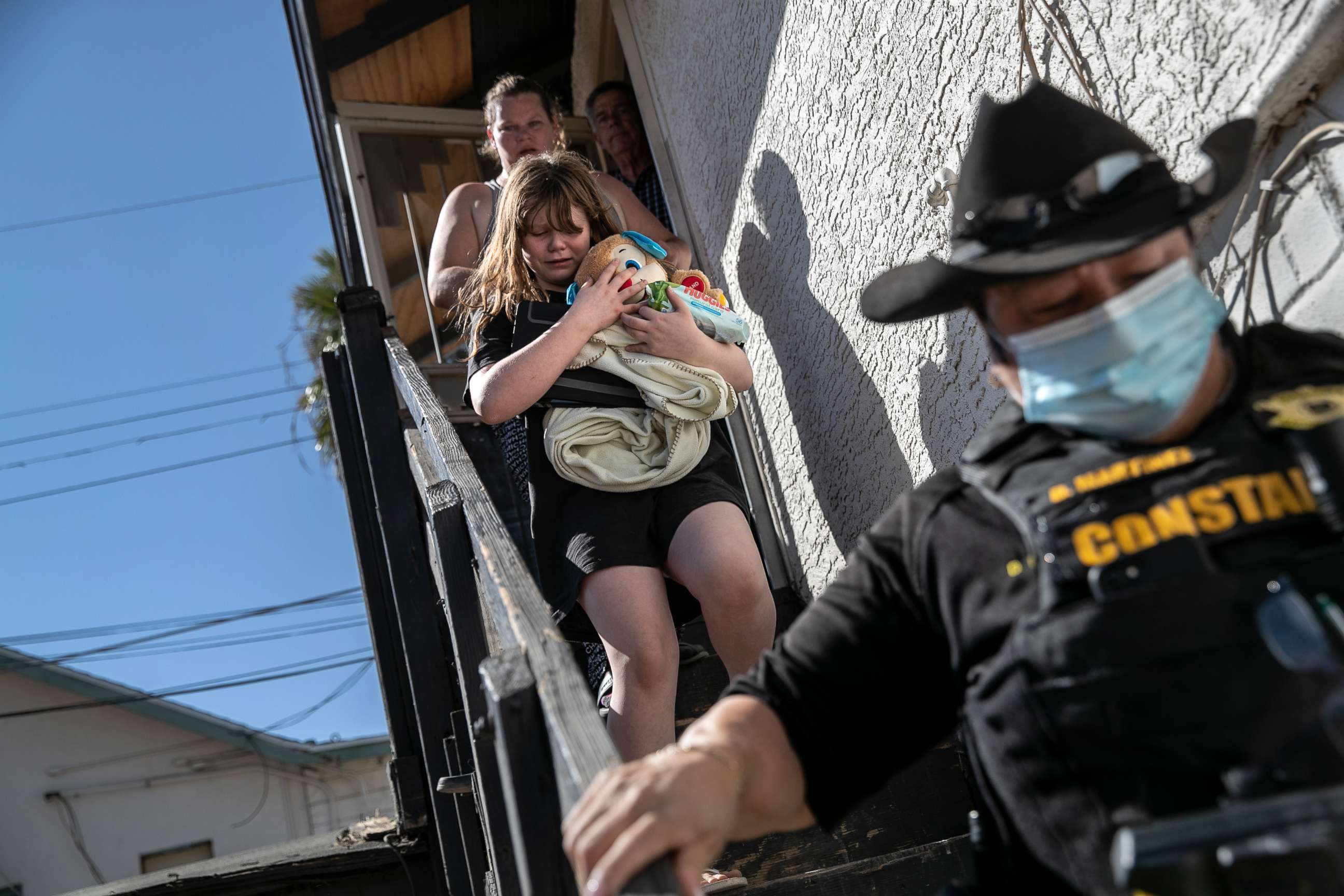
The family went to stay with relatives after they were evicted.
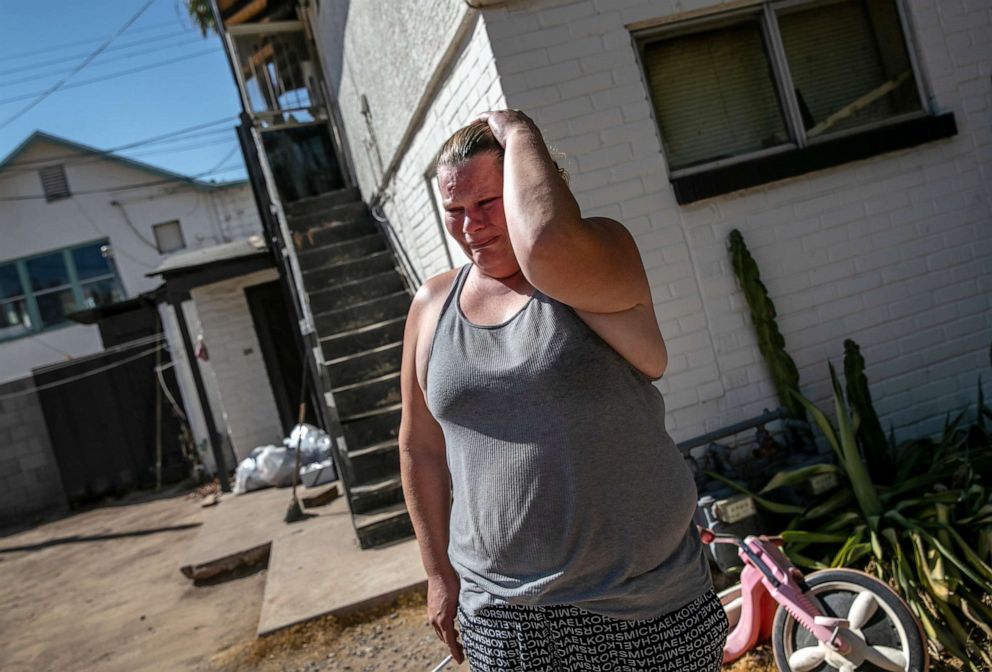
The youngest girl carries a pet and family belongings from their apartment after they were evicted.
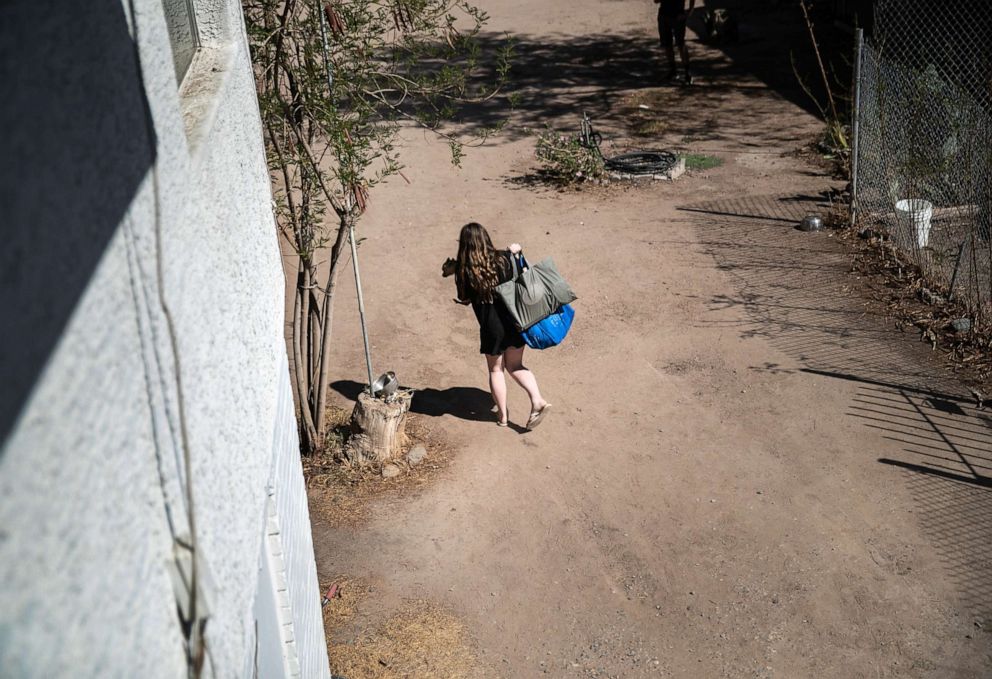
In the case of the Medrano family, pictured below, inconsistent work and a string of tragedies have combined to push them to the brink of homelessness, having narrowly avoided eviction for now. Moore pointed out that even for families who have remained healthy, the indirect effects of the pandemic have been especially tough on America's poor, who often move from crisis to crisis even in normal times.
According to Scott Davis, a press officer for the Maricopa County Justice Courts, applications for the state or federal moratoriums sometimes cannot be considered until after the first hearing. Renters who are in arrears may be found guilty of non-payment, but they won’t get kicked out yet if they qualify. A financial assistance program, initially limited to a few zip codes, was expanded state-wide once the pandemic hit.
Still, navigating the bureaucracy to obtain assistance can be one bridge too far to cross for many in crisis mode.
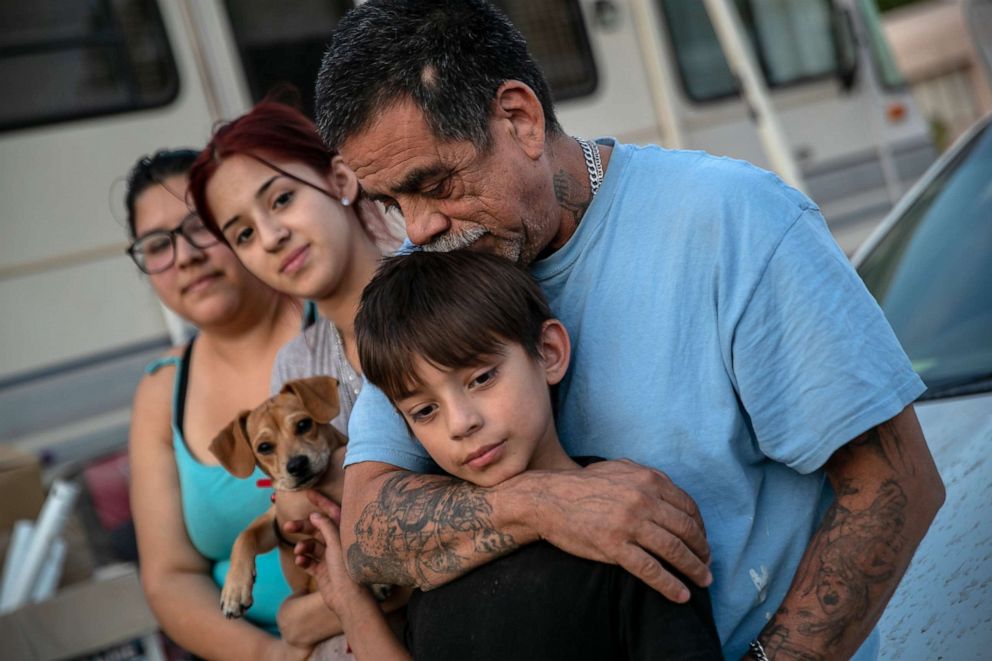
Constable Martinez was able to broker an agreement between the property manager and Hector Medrano, so that he and his family could remain in their home.
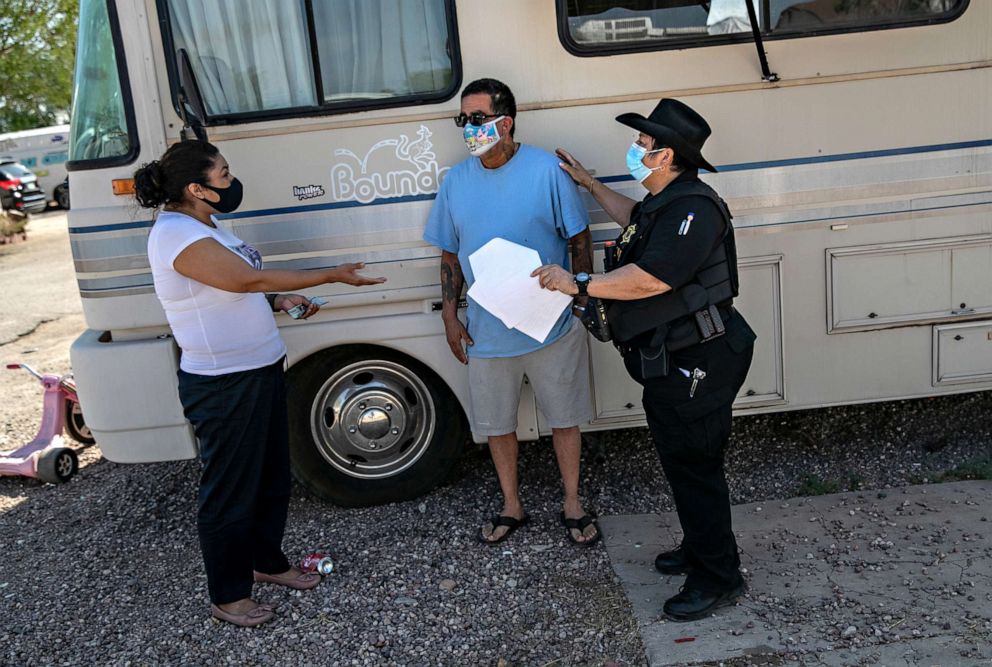
To satisfy his landlord, Medrano was able to get a last-minute salary advance to make a payment and forestall eviction from an RV park in Phoenix.

This summer Medrano's work as a truck driver was inconsistent due to the pandemic's impact on the economy. Meanwhile, he spent his entire savings on three funerals for family members in less than four months.
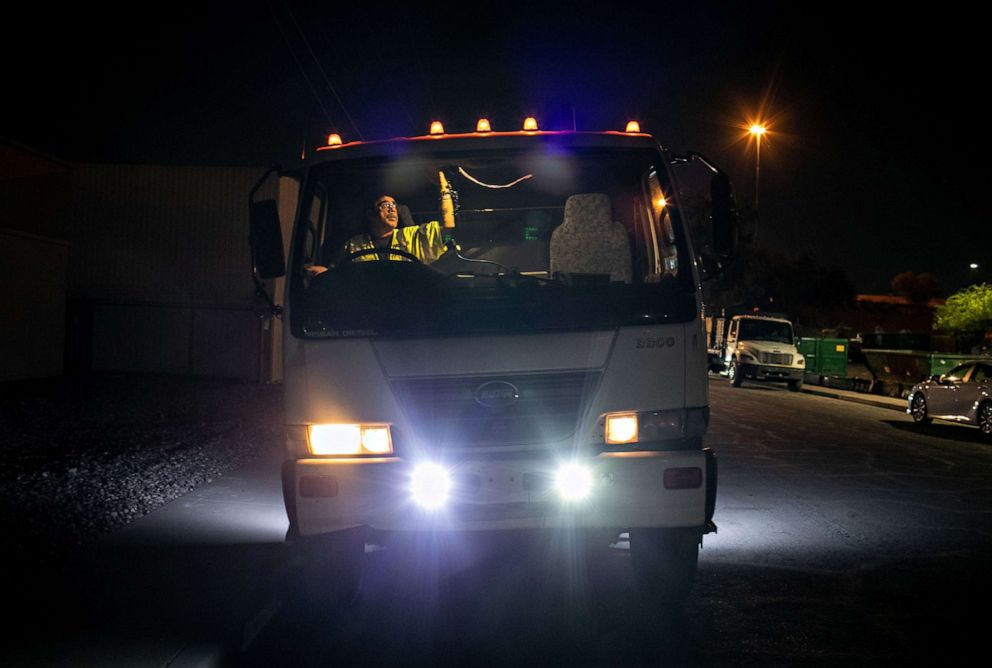
Causing further stress, Medrano's wife Ana Cecilia, who had temporary residency status in the U.S., traveled to Mexico in December of 2019 to care for her sick mother, but has now been unable to return to Arizona due to a sealed U.S.-Mexico border.
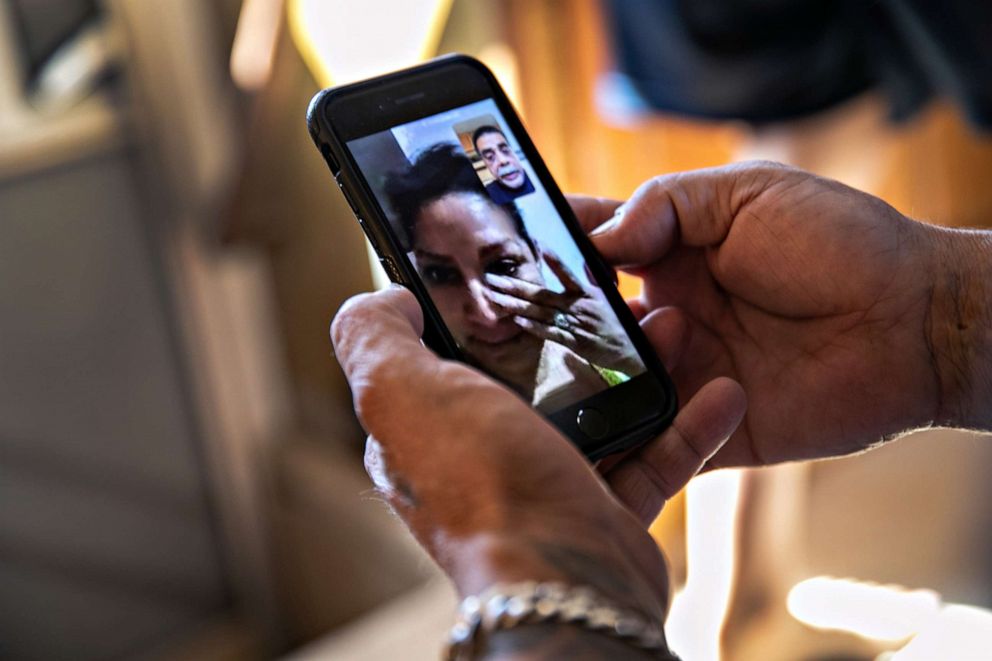
The separation left Medrano to care for their three children, supervising distance learning during the day while working at night.
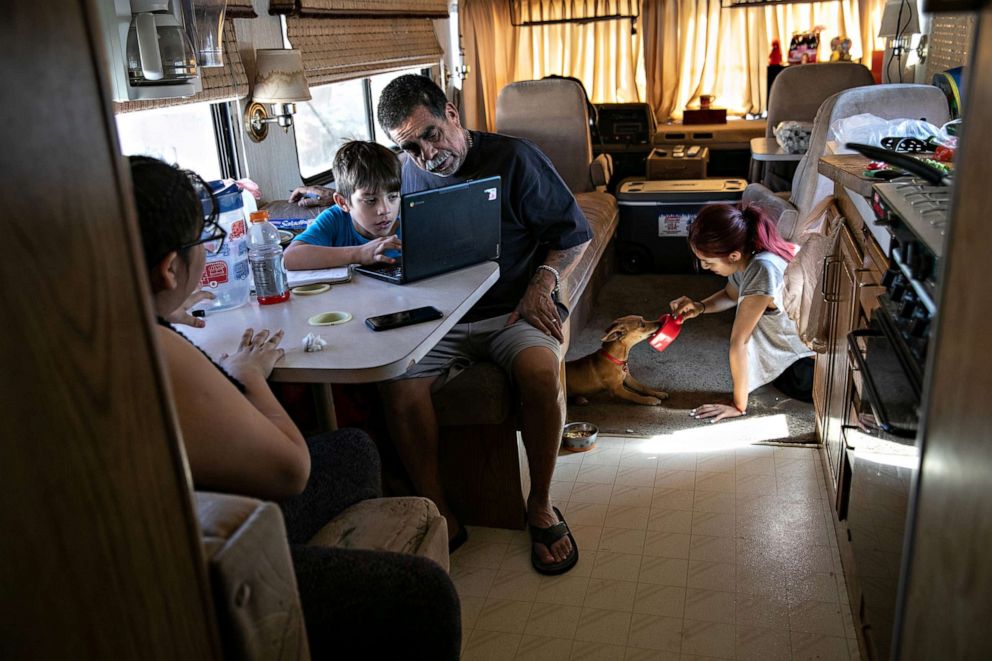
AVAILABLE RESOURCES




